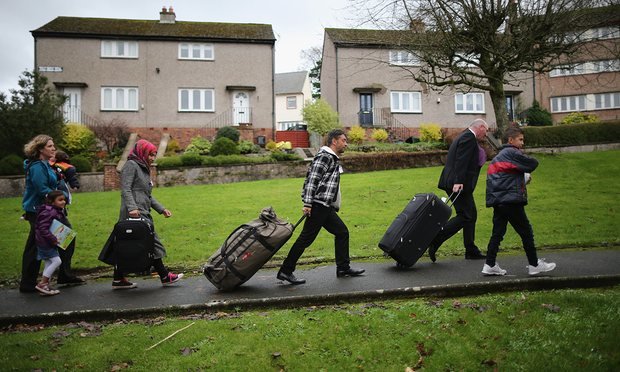From halal meat to housing issues, an insight into the new lives of the refugees who fled war-torn Syria for the isle of Bute is revealed in a report prepared for Argyll and Bute Council.
Public servants have provided a comprehensive analysis of the resettlement programme and lessons learned in the re-homing of 18 families on Bute.
The lack of a mosque on the island, the difficulties in sourcing halal meat and the differences between housing in the middle east and the west coast of Scotland were issues which the Syrians have overcome with the help of local support agencies and volunteers.
One year on from their arrival on Bute, all Syrian families interviewed said they feel extremely safe and welcome.
Morag Brown, the council’s business improvement manager, community services, writes in the report: “There are no mosques in Argyll and Bute and prior to the families arriving some members of the refugee resettlement group were able to visit Edinburgh Central Mosque and speak with the Imam there. The families are able to use the ‘pop up’ community centre for Friday prayers and have organised themselves, with one of the group taking on the role of Imam.
“Families are also able to visit the Glasgow mosque combining this with shopping trips to the city.”
While there is no halal meat for sale on Bute, the local shops have started stocking some Arabic food.
Ms Brown continues: “To date it has not been possible to source halal meat on the island. However local shops are now beginning to stock other Arabic food products including flat bread, a staple of the families’ diet. Families travel to Glasgow to stock up in food especially meat but do find it difficult to bring back the quantities they need to the island.
“There have been several solutions suggested to address this issue and several companies have offered to deliver meat over to the island, these opportunities have not yet been taken up by the families.”
Looking at housing, Ms Brown writes: “The key issues we have had to respond to in relation to housing have been due to a lack of understanding of construction in Scotland versus the middle east, our floors are not concrete and nor do bathrooms have central drains and we have had a few issues with flooding in bathrooms.”
It is also highlighted that while adults are struggling to learn English, the Syrian children are becoming fluent very quickly.
This has created a concern for parents to maintain the children’s Arabic for their cultural identity and the ability to keep in touch with family and friends from home.
The issue has only recently emerged and thoughts are being given on how best to support the families with this.
